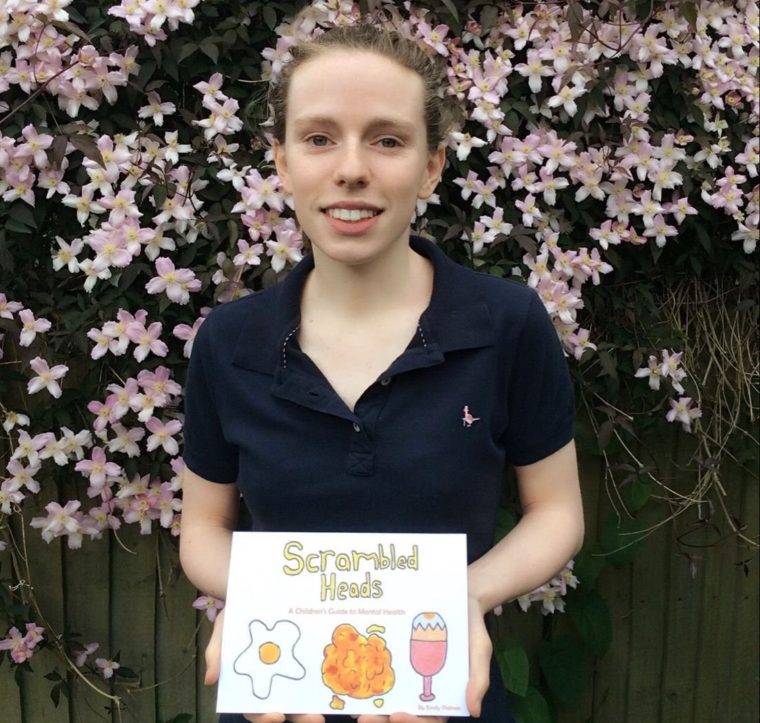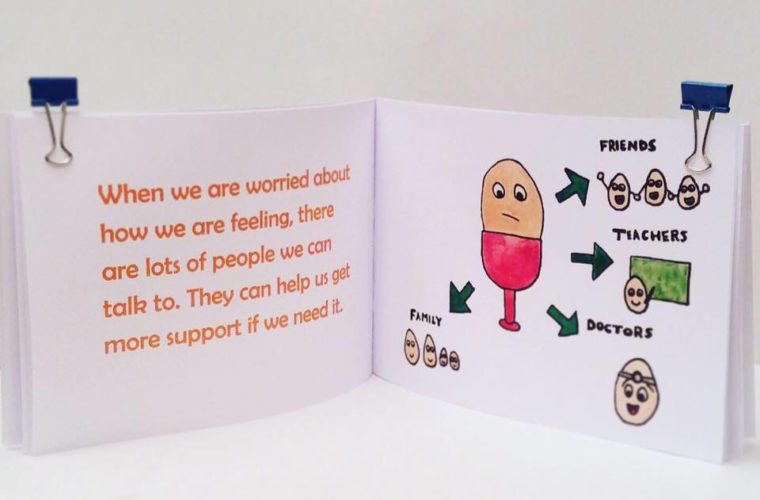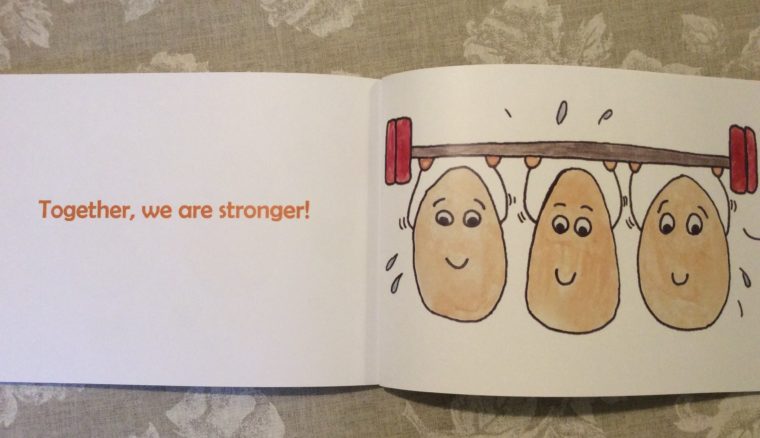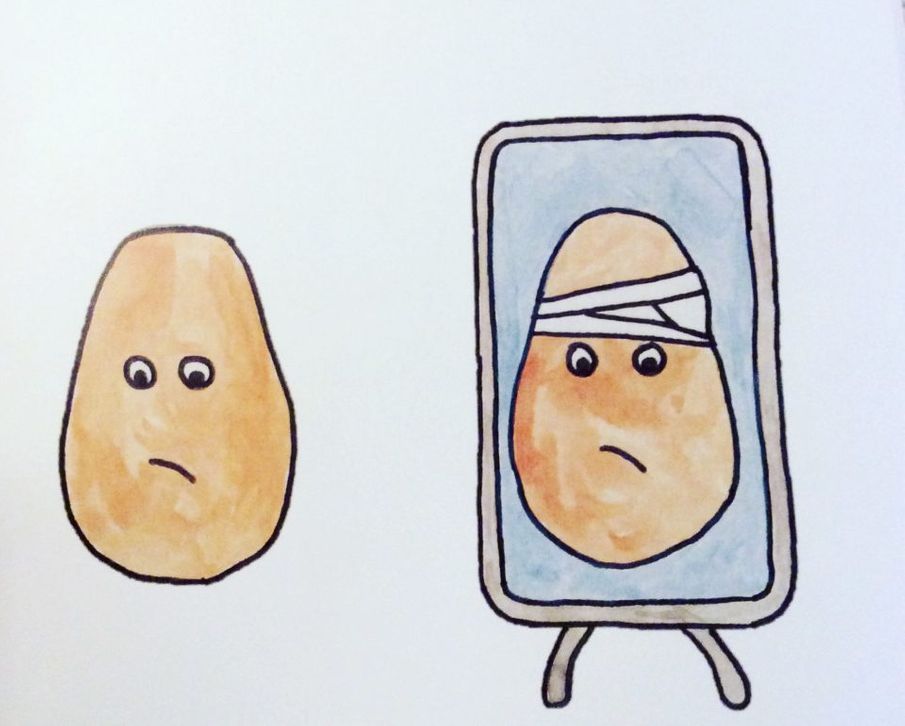Teenage author Emily Palmer’s first book introduces children to mental health from an early age
Broaching the subject on mental health can be tricky. Teenager Emily Palmer, author of children’s book Scrambled Heads, aims to provide children with the information about mental health that she wished she could have had during her early teen years and her battle with Anorexia Nervosa and anxiety.
There was very little information for me when I was diagnosed that was catering for my age group. There was information dedicated to helping the parents understand, but not so much for the young people.
By using the eggs, and incorporating it into my title, I wanted to help encourage the idea, that even though we might all have been through different experiences, at the end of it all, we are all just like each other, and deserve the same help.
Another reason I chose to use an egg was during a stay in hospital, I overheard a conversation between my dad and a nurse where he described the way I communicate as being like an egg. He said to the nurse that, like an egg, I had a hard exterior and tried to avoid showing my emotions, but under that hard shell, I’ve got a lot of emotions going on inside that we can’t see unless I let them in.

The majority of young people I spoke to said they had not heard about mental health until they went to secondary school. Many wished they had learned about it sooner.
Most of the teachers I spoke to were not teaching anything about mental health in primary school. A few had begun trying to incorporate it into their lessons, and almost all of them felt there were not enough resources to help them talk about mental health with young people in an age-appropriate way.
After speaking with young people and teachers, I went on to consult parents, nursery school teachers, psychiatrists, mental health charities, and therapists. After speaking with this large and varied group of people, my findings showed that there was a gap for a mental health tool for young people. I came up with the idea of a children’s book on mental health.
If we had been introduced to the subject earlier on, these Wellbeing lessons could have been much more valuable as we would have already had the foundations of knowledge to build on, rather than learning for the first time.

There are other underlying messages throughout the book, and one important one is the idea that it can be difficult to see if someone is struggling with their mental health. With a lot of physical health problems, it is very clear when there is something wrong. If someone has a broken leg, a cast would help other people see there is a problem. However with mental health, both the signs and symptoms can be difficult to see.
I chose to write the book in a way that meant to book was accessible to every young person. Whilst it can help those who are personally struggling or those who know someone who is, the book is also equipped to give all young people knowledge on this very important topic that affects all of us.
One of my favourite reviews was from a parent who was struggling with their mental health, and she thanked me for helping her explain to herchildren what is happening. They told me that, as a mental health nurse with personal mental health experiences, she found the book to be amazing, and said it had been a long time coming. She found it helped her daughter to really get what was happening, meaning she could help in ways she wouldn't have understood before.
I also received a photo and a message from one mother whose daughter chose to dress as the main character for World Book Day. It was fantastic to see it had such a positive impact on her.

Scrambled Heads is available to purchase now from Amazon, or follow Emily and Scrambled Heads on Facebook to keep up with the latest news.


Comments